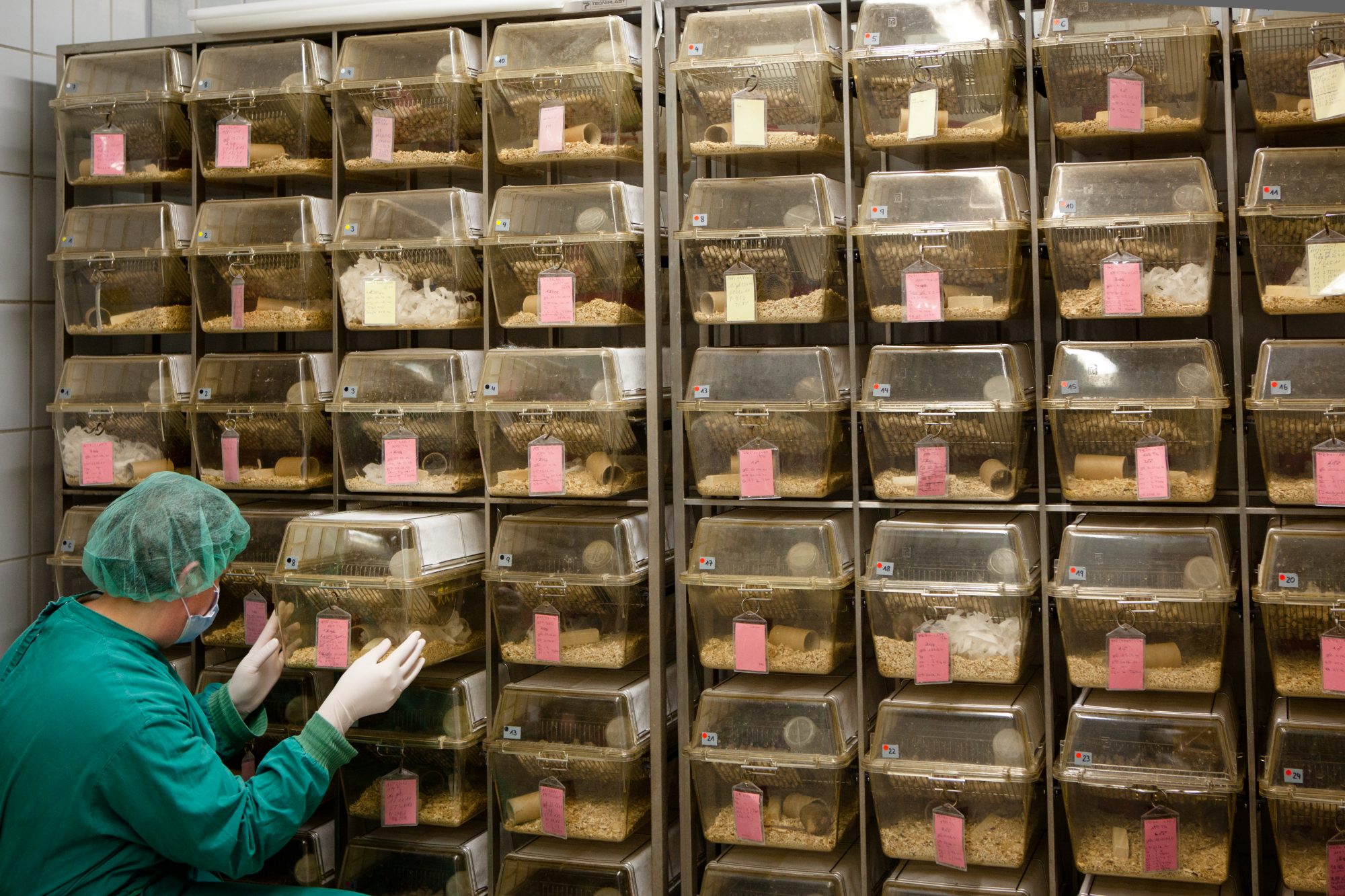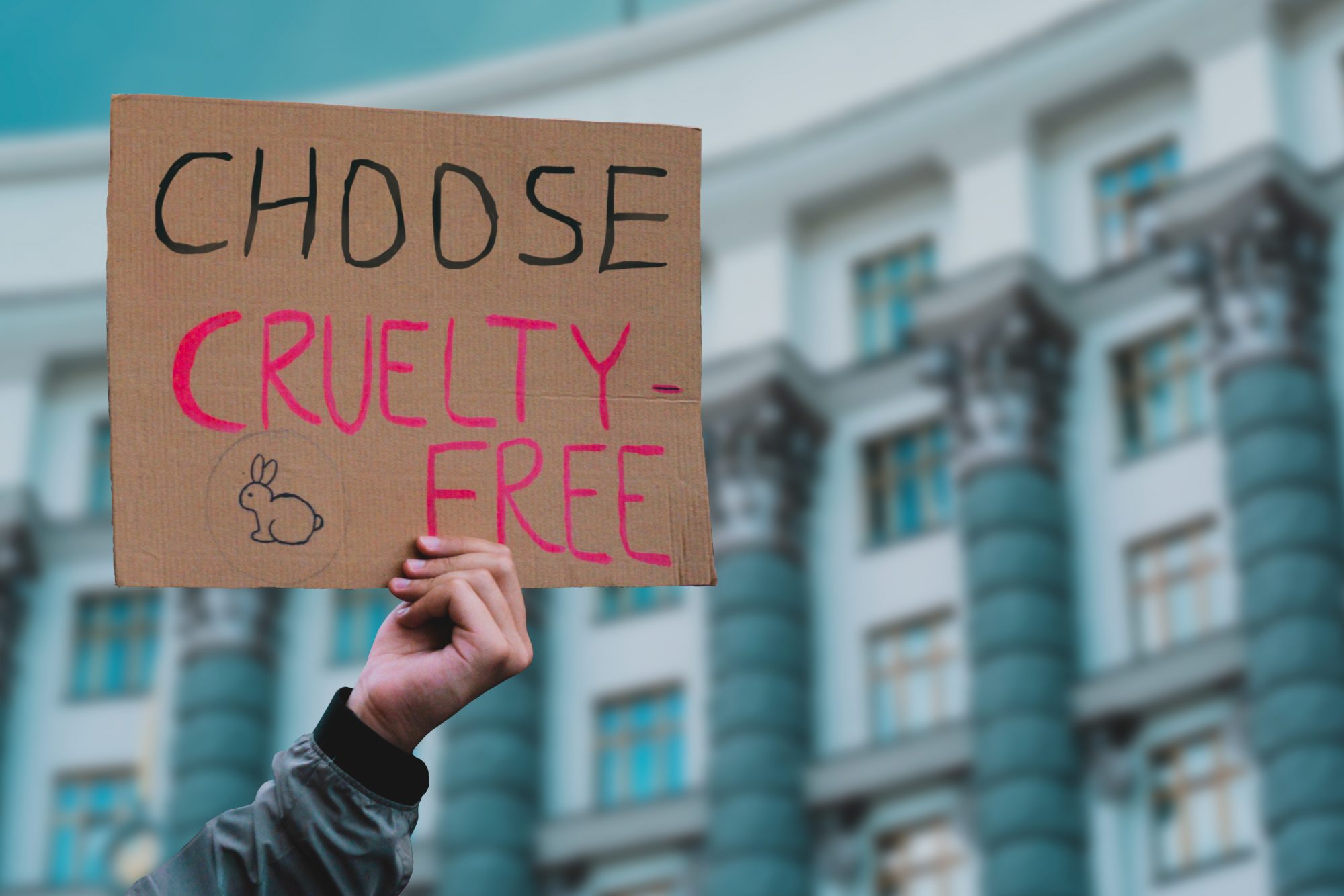Court proceedings revealed that the Home Office secretly abandoned the ban on animal testing for cosmetics in 2019, and Cruelty Free International is calling for the government to reinstate the ban
Animal protection NGO Cruelty-Free International is calling on the government to reinstate the 1998 ban on animal testing for cosmetics, which the Home Office secretly abandoned in 2019.
High Court Judge, Mr Justice Linden, has ruled that the Home Office can renew the policy.
This comes after the court proceedings disclosed documents revealing, for the first time, that the Home Office secretly abandoned the ban in 2019.
Home Secretary, Suella Braverman MP, argues she was bound by EU law to abandon the policy
In a letter sent to Cruelty Free International August 2021, the Home Office admitted that it now permits animal testing for cosmetics in the UK.
The ruling, made by Mr Justice Linden in the Judicial Review of the Home Office’s policy on animal testing in the UK brought by Cruelty Free International (number CO/3748/21), states that Home Secretary, Suella Braverman MP, can restore the ban on animal testing for cosmetics.
In court, Ms Braverman argued that she was bound by a law originating in the EU[1] to authorise such testing.

Home Office only admitted abandonment when forced under legal duress
In an earlier judicial review, the Home Office claimed that the ban on animal testing for cosmetics was still in place.
In fact, the Home Office did not indicate that this was not the case until they were forced to reply to a legal letter.
In the present Judicial Review, Mr Justice Linden criticised how the Home Office had conducted itself[2].
Mr Justice Linden stopped short of saying it was unlawful[3].
Though he agreed with the Home Office’s interpretation of the legislation, he explained that this did not prevent the UK from having a policy prohibiting cosmetics testing on animals.
Cruelty Free International is seeking an appeal against Mr Justice Linden’s ruling
In light of the ruling, Cruelty Free International plans to appeal to the Court of Appeal against the judge’s ruling that the Home Office acted lawfully.
The animal protection NGO believes that the Home Secretary behaved unlawfully by secretly abandoning the cosmetics policy without telling Parliament or the public.
This, Cruelty Free International argues, was unlawful behaviour.
The NGO will also appeal against the judge’s interpretation of the EU legislation.
Cosmetics testing on animals causes extreme suffering to large numbers of animals
But sometimes, it is worth reminding ourselves of the level of discomfort and mutilation animals have to endure for the sake of a cosmetic product like lipstick.
A prenatal developmental toxicity study usually involves one hundred rats or rabbits force-fed a substance through a tube down their throats every day for the duration of their pregnancy.
Just before they give birth, the mother and pups are killed and dissected to look for abnormalities.
In other scenarios, such as cosmetic ingredient tests, animals must ingest or inhale substances or have them applied to their skin.
Following this, the animals are subjected to further monitoring and testing.
Immediately after testing, the animals are (almost always) killed so that researchers can examine the effects on their tissues and organs.
85% of the UK public is against animal testing for cosmetics
In autumn 2021, YouGov carried out a poll that suggested that 85% of people in the UK find it unacceptable to test cosmetics ingredients on animals.
This poll reflects numerous others which reached similar results.
The case also clarified that the Home Secretary still has to consider whether the usefulness of the product justifies the level of suffering experienced by the animals used in the tests before granting a licence, even when a safety regulator, such as the Health & Safety Executive, requires animal testing to assess the safety of that product.
This is under the harm:benefit test in the Animals (Scientific Procedures) Act 1986 (ASPA).
‘It is outrageous that the Government has abandoned the ban on using animals in cosmetics testing’
Cruelty Free International Chief Executive, Michelle Thew, concludes:
“It is outrageous that the Government has abandoned the ban on using animals in cosmetics testing, and did so in secret while giving the impression that the policy remained in place.
“Documents the Home Office was forced to disclose in the case show clearly that it was prioritising the interests of contract-testing companies over those of animals and the wishes of the vast majority of British people who are strongly opposed to cosmetics testing.
“Now that the High Court has said it can do so, we call on the Government immediately to reinstate the policy ban.”
Update: Suella Braverman provided a statement on 17 May in response to the ruling
“I can inform the House that the Government is taking action to seek alternatives to animal testing for worker and environmental safety of chemicals used exclusively as cosmetic ingredients. We are therefore announcing a licensing ban with immediate effect.
“The Government is committed to replacing animals used in science wherever scientifically possible and is confident that the UK science sector and industry has the talent to provide the solutions.
“The cosmetic regulations require manufacturers to demonstrate that their products are safe for use by consumers. Animal testing for consumer safety of cosmetics and their ingredients was banned in the UK in 1998. This ban remains in force.
“Under chemicals regulations (the Registration, Evaluation, Authorisation and Restriction of Chemicals regime, or REACH), chemicals manufacturers and importers must demonstrate the hazards to human health and the environment of the chemicals they place on the market. This includes chemicals used as ingredients in cosmetics. In some cases, where there are no validated alternatives, this has in the past required testing on animals as a last resort.
“The REACH regime is separate from, and has a different purpose to, the consumer cosmetics regulations, which is why it has been possible that a chemical used in cosmetics production may be required to be tested on animals. This has been reflected in the issuing of a small number of time-limited licences between 2019 and 2022. The Government recognises the public concern around the testing on animals of chemicals used as ingredients in cosmetics, and the new opportunities available to us to depart from the EU testing regime.
“I can confirm, therefore, that from today no new licences will be granted for animal testing of chemicals that are exclusively intended to be used as ingredients in cosmetics products.
“The Government is also engaging with the relevant companies to urgently determine a way forward on these legacy licences.
“In addition, the Government is undertaking work to review at pace the effective administration of the ban over the longer term (including the legal framework for this). This would also have due regard of the needs of the science industry, the need to ensure worker and environmental safety, and the need to protect animals from unnecessary harm.
“Modern alternatives mean there are opportunities to design non-animal testing strategies for these chemicals so that worker and environmental safety is unlikely to be compromised, and potentially enhanced. In this way, working with industry, the Government is seeking to improve safety by the application of new non-animal science and technology.”
Update: NGO Cruelty Free International responds to Suella Braverman’s statement
Cruelty Free International are pleased that the government is acknowledging the Judicial Review, but emphasise that there is still a long way to go.
“This statement is a welcome first step in response to the information revealed in our Judicial Review earlier this month. We are pleased to see that the Government are listening to the British public in reinstating a partial ban on animal testing for ingredients used exclusively in cosmetics, to protect consumer, worker and environmental safety, and actively seeking alternatives to animal testing.
“However, ingredients used ‘exclusively’ in cosmetics amount to only about 20% of the total number of chemicals used in cosmetics. The previous ban, confirmed by the government in 2015, also covered ‘substances used exclusively or predominantly as cosmetic product ingredients’.
“We urge the government to now take the next step by reinstating the full ban on animal testing for cosmetics.”
References
- The judge dismissed the claim but said: ‘… I did not accept Ms Leventhal’s submission [for the Home Secretary] that, in effect, the Policy was contrary to REACH [EU chemicals legislation] and that, in the light of Symrise [a decision of the Board of Appeal of the European Chemicals Agency], the Defendant could only take the approach which she has now taken … I accept Mr Bates’ submission [for CFI] that it would in principle be open to the Defendant to adopt a policy that, whether or not animal testing of ingredients for use in cosmetics is required if they are to be placed on the market and/or is permissible in law, applications for licences to test them on animals will generally not be granted under the [Animals (Scientific Procedures) Act 1986]. The consequence would be that where, for example, REACH required animal testing of such ingredients they could not be registered and placed on the market here, but it would be open the Defendant to take this position as a matter of policy, for example in relation to the question whether, under section 5B(2)(b) [ASPA] “the purposes of the programme of work justify the use of protected animals”. The reality is that the Defendant has modified her policy position for pragmatic reasons rather than being driven to do so by Symrise or any legal requirement’.
- The judge also said that there was a good deal of force in CFI’s criticisms of the way the Home Office had gone about changing the policy. It had been ‘less than transparent’. It had delayed replying to CFI for nine months and even then failed to disclose that the policy had been changed two and a half years earlier. It was three and a half years before it began to tell stakeholders and even then there was lack of clarity.
- Two pieces of legislation were at issue : REACH (Regulation No 2006/1907) and the EU Cosmetics Regulation (No 1223/2009), and their UK counterparts. REACH often requires animal testing for chemicals generally and the judge followed the approach of the Board of Appeal of the European Chemicals Agency in ruling that cosmetics ingredients had to be animal-tested under REACH, in effect overriding the bans in the Cosmetics Regulation. Judgment is awaited in a parallel case at the European Court of Justice, considering the relationship between REACH and the Cosmetics Regulation, on appeal from the ECHA Board of Appeal. Cruelty Free International’s sister organisation, Cruelty Free Europe, was given permission to intervene in the case.
- There are many alternatives to animal testing for cosmetics but they are often underused. It is important to understand that under no circumstances are unsafe cosmetics allowed onto the market, irrespective of whether they have been tested on animals.











